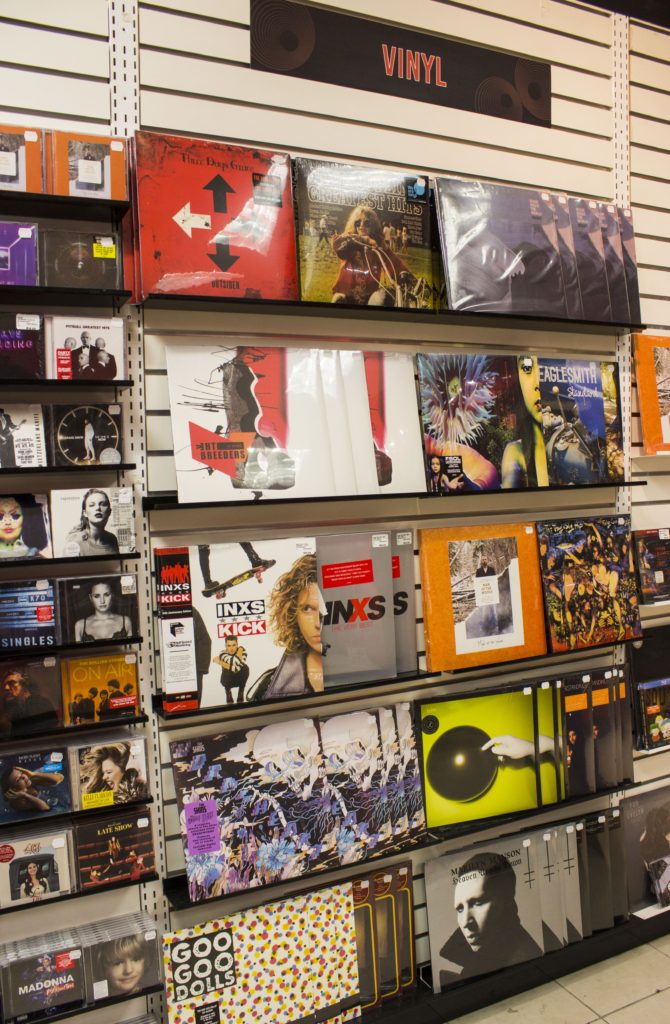As a classic audio format makes a strong comeback, music-loving consumers (and the music industry itself) are wondering about the future of the compact disc.
Jason Sheppard
Kicker
The vinyl record has been long considered a relic of decades past but over the last few years, the 12-inch record has made a strong return.
Last month, international electronics chain Best Buy announced its stores would no longer carry or sell compact discs as of July 1. The company announced it would continue to sell vinyl albums for at least another two years.
Vinyl sales in Canada rose 21.8 per cent in 2017 compared with the previous year, but that doesn’t mean vinyl has entirely replaced CDs.
Tim Ford, the vice-president of purchasing at Canadian music chain Sunrise Records, maintains that CDs are still very much, a big part of its business.
“Although CD sales aren’t what they were 10 years ago, Sunrise hasn’t really seen a decline as dire as the media seems to make it out to be,” said Ford. “I mean, it’s still a billion-dollar business globally.”
To support Ford’s view that the compact disc is still a vital contender in the music marketplace, the recently-released soundtrack of the blockbuster Marvel Studios film Black Panther sold 154,000 units during its first week.
This may account for why Ford believes there is room in the current marketplace for several audio formats.
“My personal thoughts as a vinyl collector are, I wouldn’t mind vinyl taking over as the sole medium again, but there is room for CD in our world still – and I believe for at least another decade.”

Even though companies such as Sunrise Records focus primarily on vinyl, some retailers believe that no longer selling the CD would severely hurt their business.
“If we phased out CDs, we wouldn’t last a couple of months,” according to Ford.
As with audio cassettes which were the dominant consumer music format of the 1980s, if the CD were to eventually go away, some may wonder if there will inevitably return again as a “fad.”
Craig Thomson, a business instructor at College of the North Atlantic in St. John’s, believes the music business will go in whatever direction the market is pulling it.
“If the consumer doesn’t see any value in a certain technology then they’re shifting to an alternate one,” Thomson explains. “It comes down to a change in the lifestyle of the consumer.”
The question then is whether there be a large enough demand in the market to make it profitable for businesses to still stock and sell CDs.
Thomson feels there is still a little segment of the population that will continue to embrace the format. “Older people, over 50, all they know is CDs so they’re hanging onto that,” he said.
Ford sees it in similar terms. “Like parents giving their vinyl collection to their kids, we are seeing parents giving their CD collections as well.”
Another issue that can account for the staying power of the CD is the matter of price. Taylor Swift’s most recent album, Reputation, sells for just $7.56 on Amazon.ca, while the vinyl edition costs $49.97.
This could be a reason why Ford, for one, believes that the CD isn’t going anywhere anytime soon.
“Too many CDs have been made in the last 30 years and too many are still being made for it to just go away and have people remove it from their lives altogether.”




Be the first to comment